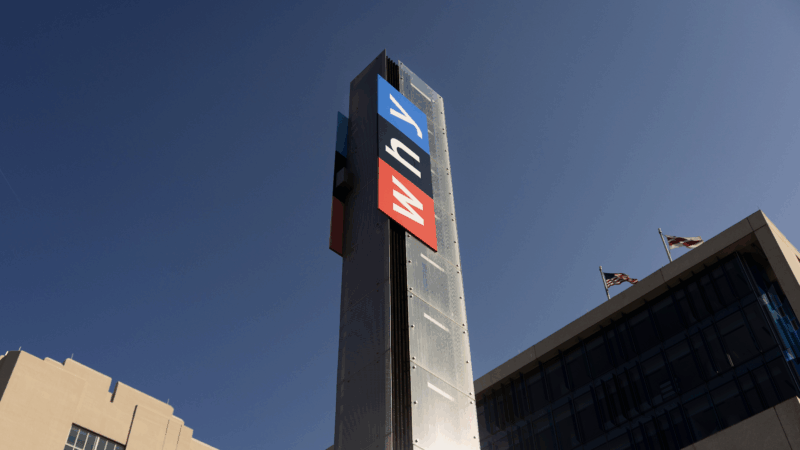Breaking down Alabama’s CHOOSE Act
It’s been a year since Alabama legislators passed the CHOOSE Act allowing families to apply for state funds to use toward homeschool expenses or tuition for participating private schools. The funds go to Education Savings Accounts, or ESAs, giving families $7,000 for each eligible student.
With the first year of the program underway, the Alabama Daily News’ education reporter Trisha Powell Crain has been diving into how the funds are being used. WBHM’s Andrew Gelderman sat down with her to talk about what we’re seeing so far.
This interview has been edited for length and clarity.
Now that we’re a bit of a ways into the program, what are we seeing now with how those numbers are sort of split up between public and private schools?
There are a lot of pieces of this that are interesting to a data nerd like myself. I want to know who’s using them. Where did they come from? Were they in public school? Were they private school? As it turns out, most of the children that are using them in private schools, about 9,600 of them, were already in private school. And there are another 3,100 that came from public school.
The next piece of data that I wanted to know was which schools are using them. Are some schools benefiting using the CHOOSE Act money more than others, and yes there are. I’ve seen other reporting by al.com that said there is some evidence that schools are raising their tuition to that $7,000 cap. Those are the kinds of things that you look for. Are schools changing their behaviors, are they changing their enrollment patterns due to this new policy being implemented? So first year we’re gonna set in a baseline and then we’ll go from here.
Where are students using those ESA funds? Are we seeing a split between more rural and those urban areas?
Actually, that one piece of data I haven’t mapped. You know, I love a good map. I did publish a map of just where the schools are. It was pretty obvious that there aren’t a lot of schools in rural areas. There are a lot schools in urban areas. There are schools in Birmingham, in Montgomery, in Mobile, and in Huntsville. Then there are some counties, I think the count was 13 counties, that don’t have a single participating school. If you don’t have a participating school, you can’t really use the CHOOSE Act funds. Another piece of information we don’t have is a complete listing of private schools that operate in Alabama.
So you’ve mentioned those two sorts of things that the data doesn’t show us currently. If we ever do see that data, what are you sort of hoping that’ll clear up or explain?
I do have a piece of data that I think is really essential to determining if the program is working. There are no accountability requirements in the CHOOSE Act for the private schools. Public schools have all this accountability, A through F report card, graduation rates, and the public knows it all. But in private school, there are none of those accountability provisions. What I’d like to know is, of the children who are eligible and who activate their education savings accounts and they go on to private school, how many of those return within that same school year to the public school that they were zoned for?
Private schools have more flexibility. They can choose not to enroll you, or they can choose to expel you if your behavior doesn’t meet their code. There’s always a fallback. The child can return to public school. So I’d like to know that information. I want to know how many of those kids change midstream or thereafter because I think lawmakers need to know if their investment in this $7,000 education savings account is holding up.
In conversations that you’re having, are you sort of hearing anything about the future of this program as of yet?
Honestly, I’ve not heard a word. I think we’re gonna need a solid year of data. And it may be next fall before we really know how this is shaking out.
Alabama man, on death row since 1990, to get new trial
The U.S. Supreme Court on Monday declined to review the summer ruling from the 11th U.S. Circuit Court of Appeals. The decision paves the way for Michael Sockwell to receive a new trial.
Supreme Court blocks redrawing of New York congressional map, dealing a win for GOP
At issue is the mid-term redrawing of New York's 11th congressional district, including Staten Island and a small part of Brooklyn.
Video of Clinton depositions in Epstein investigation released by House Republicans
Over hours of testimony, the Clintons both denied knowledge of Epstein's crimes prior to his pleading guilty in 2008 to state charges in Florida for soliciting prostitution from an underage girl.
Some Middle East flights resume, but thousands of travelers are still stranded by war
Limited flights out of the Middle East resumed on Monday. But hundreds of thousands of travelers are still stranded in the region after attacks on Iran by the U.S. and Israel.
‘Hamnet’ star Jessie Buckley looks for the ‘shadowy bits’ of her characters
Buckley has been nominated for a best actress Oscar for her portrayal of William Shakespeare's wife in Hamnet. The film "brought me into this next chapter of my life as a mother," Buckley says.
How, who, and why: NPR flips its famous letters to defend the right to be curious
NPR is standing up for the public's right to ask hard questions in a national campaign dubbed "For your right to be curious." At NPR's headquarters, on billboards in New York City, Chicago, and Washington, D.C., and across social media, NPR's three iconic letters transform into "how," "who," and "why" — a bold declaration of its commitment to fight for Americans' right to ask questions both big and small.







